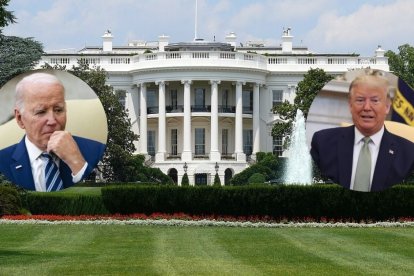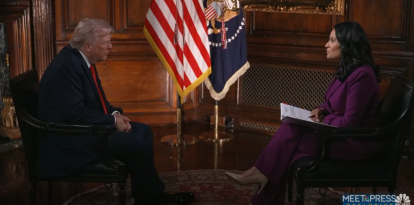Dates and locations for 2024 presidential debates announced
All candidate meetings will begin in September and will be hosted by universities in Texas, Utah, Virginia and Pennsylvania.

(Wikimedia Commons - Cordon Press)
The Commission on Presidential Debates (CPD) has announced the stipulated dates and places where the three debates prior to next year's general elections will take place:
- The first debate will be held at Texas State University in San Marcos and will be on September 16.
- October 1 will be the second debate and the candidates will face each other at Virginia State University in Petersburg (Virginia).
- The last debate will take place at the University of Utah in Salt Lake City and is scheduled for October 9.
The only vice presidential debate will be held on September 25 at Lafayette College in Easton, Pennsylvania.
The CPD announced that it will inform more details such as what the format will be and who the moderators will be in 2024. However, it did reveal that "all debates will begin at 9:00 pm ET and will last 90 minutes without commercial interruption." CPD co-chairs Frank Fahrenkopf and Antonia Hernández stated:
"The nonpartisan Commission on Presidential Debates, formed in 1987 and sponsored by Republicans and Democrats, has sponsored every presidential debate since the 1988 election," the organization said in the statement.
Selection criteria
According to CPD, the determination “regarding participation in the first scheduled debate will be made after Labor Day 2024,” but sufficiently in advance of the first scheduled debate to allow for orderly planning.” Candidates must pass three tests or eligibility criteria to be able to participate in the debates. These are:
- Constitutional Eligibility Test: "Requires compliance with the eligibility requirements of Article II, Section 1 of the Constitution." The candidate must be at least 35 years old, a natural-born citizen of the United States and a resident for at least 14 years. They must also be "constitutionally eligible."
- Ballot Access Testing: "Requires the candidate to qualify to have his or her name appear on enough state ballots to have at least a mathematical chance of securing a majority in the Electoral College." According to the Constitution, "the candidate who receives the majority of votes in the Electoral College, at least 270 votes, is elected President regardless of the popular vote."
- Electoral support indicators: "Requires that the candidate have a level of support of at least 15% of the national electorate as determined by five national public opinion polling organizations selected by the CPD, using the average of the most public polls of those organizations".
RECOMMENDATION





















